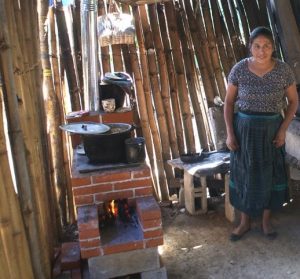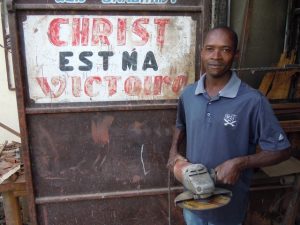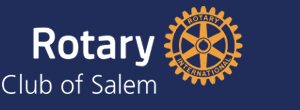What would it take to change the world? Rotary’s 1.2 million members believe it starts with a commitment to “Service Above Self”. The aim of the International Giving Committee is to encourage and foster the advancement of international understanding, goodwill and peace through the global fellowship of business and professional persons united in the ideal of service.
The Rotary Club of Salem, since the early 1980’s when Rotary International began to track the historical data, has donated in excess of $900,000 to the Rotary Foundation (including over $278,000 for PolioPlus). In addition, the Club has identified and financially supported projects around the world to enhance the lives of people in need and foster goodwill. The projects we support fit into the 6 priority areas of Rotary International: Promoting Peace, Fighting Disease, Providing Clean Water, Saving Mothers & Children, Supporting Education, Growing Local Economies.
The Five Key Focus Areas for 2020 include:
Ecuador – School Clean Water Project – Salem Rotary embarked on a major project to help provide a new source of drinking water and septic field as well as upgrading of restroom facilities for an Ecuadorean school servicing grades 1-12. The Salem Rotary leveraged its $6,000 grant by joining with four Idaho based Rotary Clubs and three Ecuador Rotary Clubs to raise additional funds plus over $14,000 in District Grants and a $20,000 Global Grant. The Roanoke College Rotaract Club also joined the fund-raising efforts by selling scarves made by the locals in Ecuador, raising an additional $3,187. In total, approximately $54,000 were procured to fully fund the project. The local Ecuador Rotary Clubs will ensure sustainability by training local villagers on maintenance and filter replacement.
 Guatemala – Eco Stove Project – Approximately 2.5 million women cook family meals on open fires every day in Guatemala, burning around 20 million tons of wood annually. In addition to the 2 to 4 hours/day spent collecting wood and contributing to deforestation, over 5,000 deaths are attributed to exposure to the toxic fumes each year.
Guatemala – Eco Stove Project – Approximately 2.5 million women cook family meals on open fires every day in Guatemala, burning around 20 million tons of wood annually. In addition to the 2 to 4 hours/day spent collecting wood and contributing to deforestation, over 5,000 deaths are attributed to exposure to the toxic fumes each year.
Eco Stoves burn 70% less wood and channel the smoke outside the homes and schools via chimneys thus reducing exposure to toxic emissions and deforestation. Additionally, a family that buys wood saves over $300 a year.
To ensure sustainability, local people are trained to build the stoves and materials are bought locally. Each family contributes $35 dollars and the Rotary contributes $50 towards the construction cost of $85 per stove.
The $6,000 Salem Rotary contribution should help construct 120 stoves in 2020.
 Guatemala – Creamos Project – There are approximately 30,000 people living near the Guatemala City garbage dump with 15,000 people working in jobs related to the dump. The average salary for women is $7/day, the average education is 4th grade.
Guatemala – Creamos Project – There are approximately 30,000 people living near the Guatemala City garbage dump with 15,000 people working in jobs related to the dump. The average salary for women is $7/day, the average education is 4th grade.
Creamos was established to help provide emotional support, job skills, temporary employment and education to offer women alternatives for supporting their families. There are 107 participants currently enrolled in the program. 223 adults have graduated and 5 students have been provided university scholarships. The goal is to offer services to at least 500 women/families within the community.
 When COVID-19 hit the area in 2020, the Creamos training site had to temporarily shut down, thus taking away revenue from the women. Salem Rotary provided a $1,000 grant which the organization used to provide temporary food support. The operation has since been reopened.
When COVID-19 hit the area in 2020, the Creamos training site had to temporarily shut down, thus taking away revenue from the women. Salem Rotary provided a $1,000 grant which the organization used to provide temporary food support. The operation has since been reopened.
Please visit this link if you would like to purchase some of their merchandise or make a donation.
Haiti – The Salem Rotary Club has supported Salem Rotarian Tom Fame over the past 20+ years as he built relationships within a rural community of Haiti’s Central Plateau.
Partnering with the Catholic Church in Cabestor situated within the Petit-Fond Valley, they have worked collaboratively with community members to identify projects to improve their health, education and economic viability. To date they have constructed several clean water projects along with three primary schools (whose teachers are paid through an endowment fund they established). A public health facility, including a birthing center, was also established. It is headed by a local woman they supported to receive her public health masters, along with four Haitian nurse midwives and a series of traditional birth attendants throughout the countryside to provide much needed birthing services.
 Job training was also a core focus area with the training of youth to start businesses such as a corn grinding mill, a tree nursery, agricultural consultants, advanced teacher training, sewing and a fabrication/welding shop.
Job training was also a core focus area with the training of youth to start businesses such as a corn grinding mill, a tree nursery, agricultural consultants, advanced teacher training, sewing and a fabrication/welding shop.
In 2020, a $2,000 grant from the Salem Rotary will be used to help fund the start-up of the village’s first fabrication/welding shop for the valley of 16,000 people. The proud operator recently completed a 3-year welding apprenticeship and hopes to provide a vital sustainable service to the community.
If you would like to make a personal contribution to the ongoing support of the village of Cabestor, please contact Tom Fame at TLFame@comcast.net
 Since 1979 Rotary International has worked to eradicate polio, starting with the vaccination of 6 million children in the Philippines. Today, Afghanistan, Nigeria and Pakistan are the only countries where polio remains endemic.
Since 1979 Rotary International has worked to eradicate polio, starting with the vaccination of 6 million children in the Philippines. Today, Afghanistan, Nigeria and Pakistan are the only countries where polio remains endemic.
Each year the Salem Rotary strives to raise between $5,000 to $10,000 to help support Rotary International in the effort to expand the vaccination effort. Bill & June Long have several “iron lungs” which were actually used in the US that they display at various community events to help raise awareness and funding. Look for them each year at Old Salem Days.

